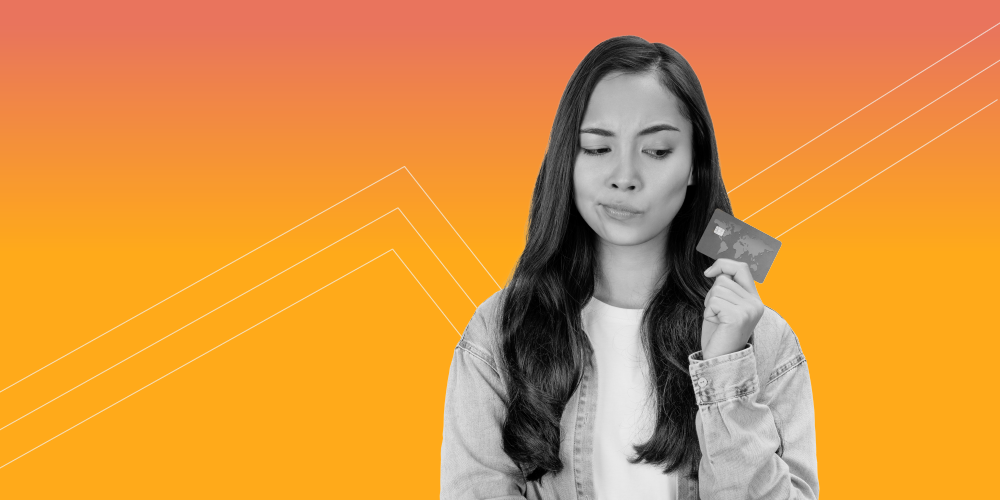Can You Get a Cash Advance with a Debit Card?

There was a time when cash was king. And while cash-only transactions might not be as common now in the age of your Venmos and your Paypals, it’s still something you may encounter every so often.
Even if you don’t carry cash on a regular basis, any small cash transaction can be handled easily. You can go to your local ATM and make a withdrawal, or you can pop into the store and get cash back. However, it is important to have enough money in your checking account to do these transactions.
Therefore, it's not possible to get cash advance with a debit card. By the way, when you think “cash advance,” you’re probably thinking about a credit card cash advance. This is when you take out money using your credit card, and the amount you withdraw is added to your total balance. You can read our complete guide to cash advances in the OppU article What is a Cash Advance.
Many people use their debit card to withdraw money from an ATM by accessing the funds available in their linked bank account – this is known as a withdrawal. However, if the funds are not available, the bank may assess you a fee via something called an overdraft. It is important to understand how an overdraft works, as well as the disadvantages of an overdraft.
How do debit card overdrafts work?
When you overdraw your account, the bank covers the transaction on your behalf, essentially lending you additional funds. Of course, most of us need assistance from time to time, and overdrafting can offer much needed financial support during different types of situations such as:
- Emergencies. Unforeseen emergencies, such as medical bills, home repairs, or car repairs can arise when you least expect them. Having access to an overdraft can provide immediate funds to address these urgent expenses until you can arrange other financial resources.
- Cash flow issues. You may have times when there’s a temporary gap between your income and expenses, resulting in a shortage of funds to cover essential bills or payments. An overdraft can act as a short-term solution to bridge this gap and ensure that your financial obligations are met until your next paycheck or income source.
- Avoiding late fees or penalties. In certain situations, not having enough funds in your account to cover a scheduled payment, such as a utility bill or rent, can lead to late fees or penalties. Utilizing an overdraft can help prevent such charges and give you additional time to arrange funds and make the payment.
- Unforeseen income delays. If you rely on irregular or freelance income, there might be instances when payments from clients or customers get delayed, disrupting your budget. An overdraft can offer temporary relief by covering essential expenses until your pending payments are received.
What are the downsides to a debit card overdraft?
Be sure to use this financial tool wisely, since the bank will likely charge you an overdraft fee for this service. The fee amount and overdraft policies vary by bank, but overdrafting usually means dealing with some pretty sizable fees. According to the Consumer Financial Protection Bureau (CFPB), the average overdraft fee, also known as a non-sufficient funds fee, is $34 which might seem expensive, especially if the fee is charged on a small purchase like a $5 cup of coffee.
Some other downsides of overdrafting include:
- Debt accumulation: Overdrafting can lead to the accumulation of debt. If you regularly rely on overdrafts to cover expenses, you may find yourself in a cycle of borrowing, repaying, and overdrafting again, which can quickly become a financial burden.
- Negative impact on credit score: Consistently overdrafting your account and failing to repay the negative balance could lead your account to be sent to collections. This could impact your credit score if the collections agency reports the information to the major credit bureaus, making it more challenging to secure credit in the future or resulting in higher interest rates.
- Potential account closure: Repeatedly overdrafting your account without taking corrective action may lead your financial institution to close your account. This can result in the loss of banking privileges and make it difficult to open new accounts elsewhere.
- False sense of available funds: Relying on overdrafts can create a false sense of available funds in your account. It may lead to overspending and poor financial decision-making, as you may not have an accurate understanding of your true financial situation.
It's important to understand the implications of overdrafting and to explore alternative financial management strategies. Building an emergency fund, setting a budget, and monitoring your expenses can help you avoid relying on overdrafts and maintain better control over your finances.
Additionally, you should check if your bank account features overdraft coverage or overdraft protection since these are two different approaches to managing overdrafts.
- Overdraft Coverage: Overdraft coverage is a service provided by a financial institution that allows account holders to overdraft their accounts up to a certain limit. It typically comes with associated fees and interest charges that the account holder must repay, along with repayment of the negative balance.
- Overdraft Protection: On the other hand, overdraft protection is a service that financial institutions offer to help account holders avoid overdrafts and associated fees. It involves linking another account, such as a savings account, to the primary checking account. When a transaction exceeds the available balance in the checking account, funds are automatically transferred from the linked account to cover the shortfall. Overdraft protection is a safety net, preventing declined transactions and potential fees.
What are other benefits of a debit card?
Debit cards offer a range of functionalities beyond simple cash withdrawals. Here are some common things you can do with a debit card, assuming you have the cash available in your linked account:
- Withdrawals from other banks. For the most part, you can go to any local bank branch and get a withdrawal, even if it’s not affiliated with your bank. Not being limited to your bank is a huge advantage. However, it should be noted that not all banks will accept your request for a withdrawal and most out-of-network banks will charge a fee for the withdrawal. Check with the bank for details.
- Purchases and transactions. Debit cards can be used just like credit cards for point-of-sale transactions, online purchases, bill payments, and money transfers – the major difference is that you must have money in your linked account to do these things with a debit card.
- Cashback. Get cashback from many retailers and supermarkets when you make a purchase using a debit card. This allows you to withdraw a certain amount of cash along with your purchase at the checkout counter, eliminating the need for a separate ATM visit.
These are great benefits that many people don’t know about, but just remember that they do require you to have money in your linked account.
The bottom line
Debit cards offer numerous benefits that make them a convenient financial tool. They provide easy access to funds, allowing you to make purchases and payments without the need to carry cash. It’s important to make sure you have the funds in your linked account, as overdrafting can lead to additional fees and potential financial difficulties.


